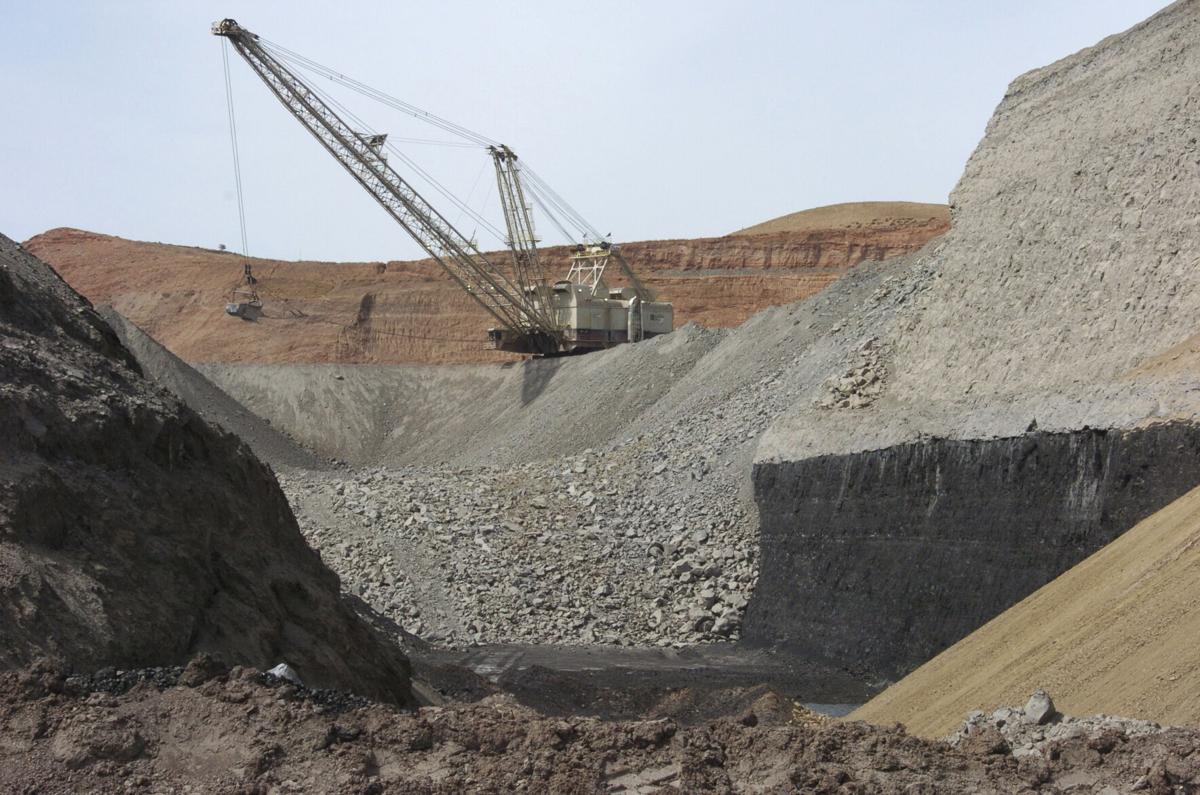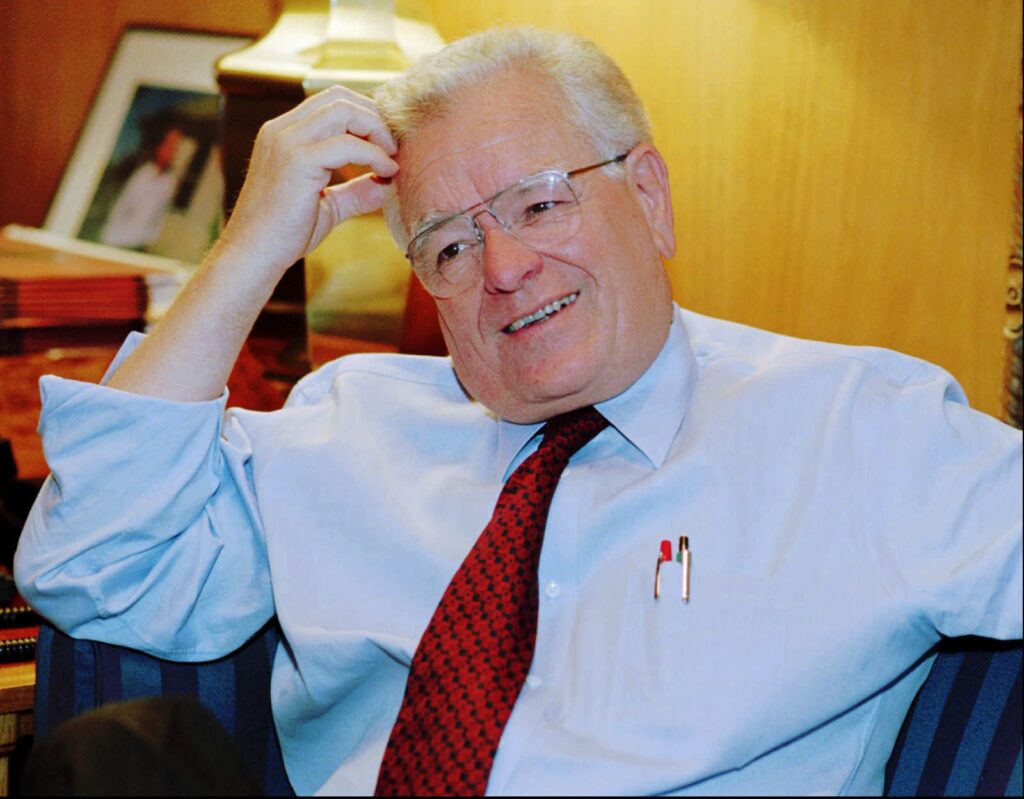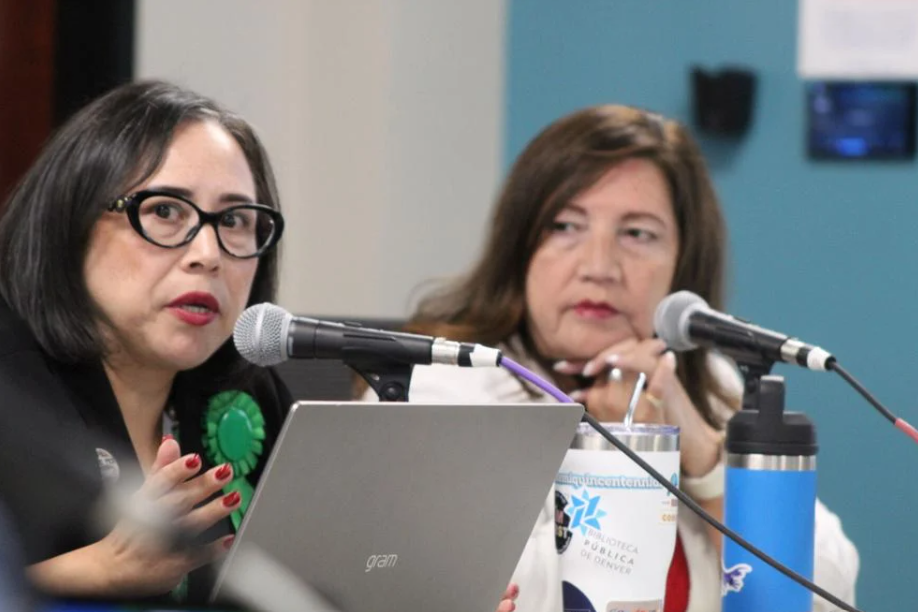OUT WEST ROUNDUP | Judge revives moratorium on coal leases on US lands


In this April 4, 2013, file photo, a dragline excavator moves rocks above a coal seam at the Spring Creek Mine in Decker, Montana. A federal judge on Aug. 12, 2022, reinstated a moratorium on coal leasing from federal lands that was imposed under former President Barack Obama and then scuttled under former President Donald Trump.
(AP Photo/Matthew Brown, File)
MONTANA
Judge revives Obama-era ban on coal sales from US lands
BILLINGS — A federal judge on Aug. 12 reinstated a moratorium on coal leasing from federal lands that was imposed under former President Barack Obama and then scuttled under former President Donald Trump, in an order that marked a major setback to the already struggling coal industry.
The ruling from U.S. District Judge Brian Morris requires government officials to conduct a new environmental review before they can resume coal sales from federal lands. Morris faulted the government’s previous review of the program, done under Trump, for failing to adequately consider the climate damage from coal’s greenhouse gas emissions and other effects.
Almost half the nation’s annual coal production — some 260 million tons last year — is mined by private companies from leases on federal land, primarily in Western states such as Wyoming, Montana and Colorado.
Few coal leases were sold in recent years after demand for the fuel shrank drastically. But the industry’s opponents had urged Morris to revive the Obama-era moratorium to ensure it can’t make a comeback as wildfires, drought, rising sea levels and other effects of climate change worsen.
Northwest Colorado awarded $8.5M to economically diversify coal communities
Coal combustion for electricity remains one of the top sources of U.S. greenhouse gas emissions, even after many power plants shut down over the past decade because of concerns over pollution and changing economic conditions.
The coal program brought in about $400 million to federal and state coffers through royalties and other payments in 2021, according to government data. It supports thousands of jobs and has been fiercely defended by industry representatives, Republicans in Congress and officials in coal- producing states.
Officials from Montana and Wyoming had intervened in the case on the side of the federal government and argued against reviving the moratorium.
Demand for coal has plummeted as many utilities switch to natural gas or renewables to generate power.
US sued to force decision on Rockies wolf protections
BILLINGS — Wildlife advocates sued federal officials on Aug. 9 after the government missed a deadline to decide if protections for gray wolves should be restored across the northern U.S. Rocky Mountains, where Republican-led states have made it easier to kill the predators.
The Biden administration said in a preliminary finding last September that protections for wolves may need to be restored because increased hunting in Idaho and Montana posed a potential threat to wolves across the region.
The Humane Society of the United States and Center for Biological Diversity asked U.S. District Judge Donald Molloy in Montana to order federal officials to make a final decision.
Reintroduction of gray wolves takes a step closer, recommendations face resistance
U.S. Fish and Wildlife Service spokesperson Vanessa Kauffman declined comment on the lawsuit and said the agency’s review was ongoing.
Wolves were exterminated across most of the U.S. by the 1930s under government-sponsored poisoning and trapping campaigns. They were reintroduced from Canada into the northern U.S. Rockies in the 1990s.
Wilderness areas in Idaho, Montana and Wyoming have since become strongholds for wolf populations. That’s helped fuel the species’ expansion in recent years into portions of Oregon, Washington state and California.
Republicans governors in Idaho and Montana last year signed laws that expanded when, where and how wolves can be killed.
WYOMING
Pipeline break spills 45,000 gallons of diesel
BILLINGS, Mont. — A diesel pipeline in Wyoming owned by a company that’s being sued by federal prosecutors over previous spills in two other states cracked open and released more than 45,000 gallons of fuel, state regulators and a company representative disclosed on Aug. 12.
Cleanup work is ongoing from the spill that was discovered by the pipeline’s operator on July 27, said Joe Hunter, Emergency Response Coordinator with the Wyoming Department of Environmental Quality. The fuel spilled into sandy soil on private ranchland near the small community of Sussex in eastern Wyoming and did not spread very far, he said.
The line is operated by Bridger Pipeline, a subsidiary of Casper-based True companies, according to an accident report.
Colorado will renew attempt to bring hydrogen plant to the Yampa River Valley
The company initially reported only 420 gallons had spilled, but later revised its estimate to 45,150 gallons, according to a National Response Center database.
Bridger Pipeline spokesperson Bill Salvin said the initial figure was based on what company personnel saw on the ground and reported immediately. The volume estimate increased as the site was excavated, he said.
The 6-inch diameter steel line was installed in 1968 by the original owner and later acquired by Bridger Pipeline, Salvin said. It was last inspected in 2019, using a device that travels inside the pipe looking for flaws, and no problems were detected, he said.
Bridger last year reached a $2 million settlement with the federal government and Montana over damages from the Yellowstone River spill.
ARIZONA
Joe Arpaio loses 3rd comeback bid in mayoral race
PHOENIX — Joe Arpaio, the 90-year-old former Arizona sheriff who was a once powerful figure in Republican politics but was ousted nearly six years ago amid frustration over his headline-grabbing tactics and legal troubles, was defeated on Aug. 10 in a race for mayor of the affluent suburb where he has lived for more than two decades.
His defeat in the mayor’s race in Fountain Hills against two-term incumbent Ginny Dickey marks Arpaio’s third failed comeback bid since his 2016 loss after serving 24 years as the sheriff of Maricopa County.
Even though election officials say all votes in Maricopa County have been counted, Arpaio said on Aug. 10 that he wasn’t conceding the race and instead was going to consult with an attorney to explore whether to challenge the results.
Arizona's Joe Arpaio, former Trump lawyer John Eastman endorse Laurel Imer in GOP's 7th CD primary
The political stakes of running in Fountain Hills, a Republican-heavy town of 24,000, were much lower for Arpaio than when he served as the top law enforcer of a county of over 4 million people.
Arpaio was crushed by a Democratic challenger in 2016 and was convicted the next year of criminal contempt of court for disobeying a judge’s order to stop traffic patrols that targeted immigrants, though he was later pardoned by then-President Donald Trump.
Arpaio then finished third in a Republican primary for a U.S. Senate seat in 2018 and second in the GOP primary in a 2020 bid to win back the sheriff’s post.
Arpaio faced heavy criticism as sheriff for taking on policies that he knew were controversial and racking up $147 million in taxpayer-funded legal bills.
NEW MEXICO
Tree falling on power lines blamed in fatal fire
ALBUQUERQUE — An investigation has determined that a tree falling in power lines started a fatal fire that also destroyed more than 200 homes in the Ruidoso area four months ago, according to a newspaper.
The Albuquerque Journal said a report issued by the New Mexico Energy, Minerals and Natural Resources Department states that wind gusts of up to 80 mph toppled a 49-foot-tall drought-stressed tree on April 12, causing electrical lines to arc and ignite the fire.
The following day, authorities reported finding the remains of an elderly couple who died while trying to evacuate their burning home.
The fire has spawned two lawsuits filed on behalf of dozens of Ruidoso property owners.
Requirement for insurance to cover more property value, other wildfire laws take effect in Colorado
The suit alleges that Public Service Company of New Mexico and a contractor caused the fire by failing to properly maintain trees and vegetation near its power lines.
PNM has denied any fault or wrongdoing, saying the tree that struck the electrical lines was located outside of the company’s right-of-way.












